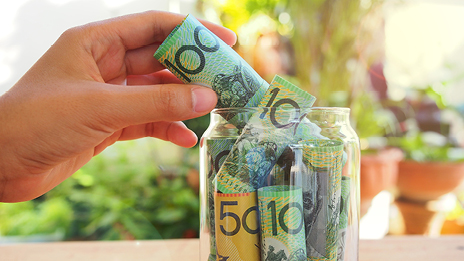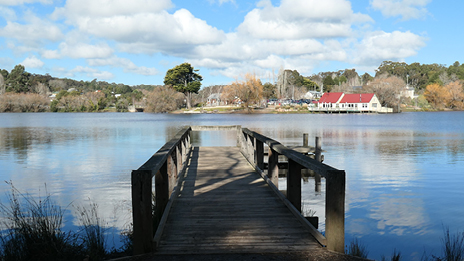Live a low waste lifestyle and you will be saving the planet - and some money! Find out how to save a dollar by being environmentally friendly.
Moving to a low or zero-waste lifestyle can help the environment but it also benefits your hip pocket.
Chances are you’re familiar with the plastic bag ban at major retailers across the country which divided shoppers around Australia. The change is happening in effort to reduce the number of plastic bags that end up in our oceans and in landfill.
From bringing your own coffee cup to banning single-use straws, it’s becoming increasingly clear that ‘zero-waste’ is a lot more than just another Instagram trend – it’s a lifestyle that’s here to stay.
A quick catch-up in case you aren’t familiar: Living ‘zero-waste’ means changing your habits so none of your rubbish from home goes to landfill. Some of the easiest and most talked-about zero-waste changes include:
- Saying no to takeaway coffee cups by bringing a re-usable coffee cup (or mug) instead;Refusing a plastic straw with your drink;Ditching the single-use plastic water bottle and refilling a re-usable bottle instead.
As we all know, landfills still runs deep. More than ditching the plastic bag or asking for no straw with your water, there are a number of other ideas that can save more than just room in your rubbish bin. What else could you be saving?
Money. A lot of it.
But ‘how?’, you might ask. You need to buy the water bottle and the re-usable coffee cup... how exactly does that save me money?
Zero-waste is about more than just avoiding single-use packaging. It’s about changing your buying habits to promote a sustainable economy. One that affects everyone.
An important tip: If you’re looking to make the shift to a zero-waste lifestyle, remember that you are re-learning habits that you’ve had your whole life. The key is to make small changes one at a time.
Now, let’s think back to the basics of a sustainable life that were drilled into us at a young age for some inspiration.
Reduce the number of things you buy.
Consider whether you really, really need something or whether you’re shopping on an impulse or to fill a void.
If you do need to buy something, why not look for it second hand? For years, advertising companies have told us that unless something is brand new then it’s ‘no good’. And that’s simply not true. By looking for what you need second hand on Gumtree, in a second-hand store or on eBay, the savings you stand to make are enormous.
The Reduce principle also extends to grocery shopping. Did you know that the average Australian family throws out over $3,500 of food a year?
One way to make sure you’re buying what you need is to shop at bulk stores, where you can buy grains, flours, spices, seeds, pastas and even cleaning products in specific quantities. You bring your own containers (jars or paper bags), fill up with as much as you want, weigh it, pay for it and off you go.
While it does take preparation, the benefit is that you are buying exactly the amount that you need, saving money (and pantry space!) in the process.
Reuse what you already have and if you don’t have it – borrow it!
The amount of power tools that Australians own – but only use once – are valued in the hundreds.
We’ve all been in that situation. You’re in the middle of a project and you’re missing the one key element to get you to the next step, so you go out and buy it brand new without much thought.
Whether it’s a drill for a workshop project, a glass bowl and matching ladle for some fruit punch, or a bike pump so you can go for a ride this weekend. Consider borrowing instead of buying. Share a post on Facebook, knock on your neighbour’s door or see if there’s a Library of Things or Tool Library in your city.
Ready to put the money you’ve saved from shifting to your zero-waste lifestyle to good use? If you have an offset account you can add your savings into that account. Watch the offset video and find out how it can work for you.
Other stories from the newsletter
Top tips to save your pennies at a pinch
Combating the rising costs of living through smart monetary management.
Destination relaxation: Unwind in Daylesford
A few days in Daylesford can blow away the cobwebs.
A simple guide to fixed vs variable home loans
Rates are on the move, so here's a guide to help you understand the difference between fixed and variable home loans.
Things you should know
Any advice provided in this article is of a general nature only and does not take into account your personal needs, objectives and financial circumstances. You should consider whether it is appropriate for your situation. Please read the applicable statement(s) on our website before acquiring any product.




